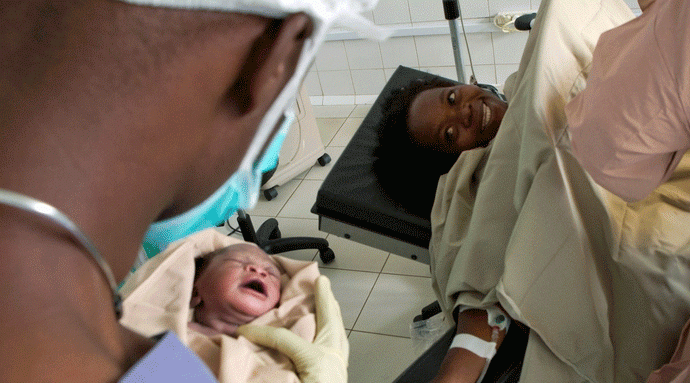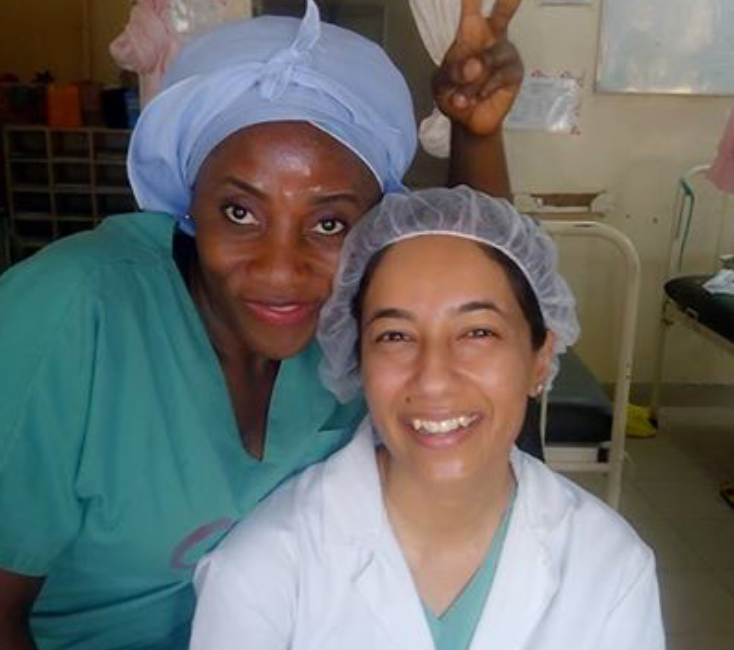Gynecologist/Obstetrician
MSF works with teams of qualified, specialised, motivated gynecologists/obstetricians who provide high-quality care for patients.
Our maternity units and surgical projects deliver high-quality standardised care (protocols, hygiene, technical platform and medicinal products) and, despite the unstable or remote settings in which we work, MSF provides the appropriate expatriate and local human resources to ensure the provision of high-quality care for patients.
Our need for gynecologists/obstetricians is increasing and crucial for our projects because:
- They contribute their expertise to the overall care of patients.
- They also play a role in training and in sharing expertise with local doctors.
We are looking for female gynecologists/obstetricians for our maternity units in Afghanistan, where only female medics are accepted.
We have various maternity units, one of which is in Khost, Afghanistan.
Khost is a province in eastern Afghanistan whose population has been greatly impacted by the war.
The project started in 2012. It is a maternity unit that offers family planning services and a neonatology unit. The project has been widely accepted by the community since its launch.
There are huge obstetric needs and, at present, approximately 2,000 women a month come to the maternity unit to give birth.
Medical team
The medical team comprises expatriates and local employees who work together providing gynecological, anesthesia, surgical, pediatric and maternity services.
The team is supported by nurses from the operating room, the anesthesia unit and the inpatient department, as well as a pharmacist and laboratory technicians.
Role of the gynecologist/obstetrician
- Training the midwives, nurses and local doctors.
- Managing the obstetric procedures in close cooperation with the paramedical and medical team.
- Managing the labour and delivery rooms with the midwives.
- Managing post-partum complications.
- Carrying out patient rounds every day.
Profile
- A certification in gynecology-obstetrics.
- Desire to share knowledge, skills and experience with colleagues.
- Experience in team management, training and supervision.
- Available for a minimum period of six weeks.
- Ability to adapt to working with sometimes limited resources.
- Applications from female gynecologists/obstetricians are sought.
- Adhere to the MSF Charter and to our managerial values: Respect, Transparency, Integrity, Accountability, Trust and Empowerment
- Adhere to our Behavioral Commitments
-
Willingness to leave on mission without your partner and/or family and to work in an unstable environment
- Good French and English language skills
MSF offers
- Preparation for departure on assignment, briefing and debriefing.
- Health insurance.
- Transportation, vaccinations, visa and accommodation expenses.
- Monthly salary and per diem.
- A humanitarian medical training offer.
- Personal follow up of humanitarian competencies.
- A dynamic, stimulating and multicultural work environment.
The MSF surgical care policy covers all surgical and anesthesia care and encompasses:
- General surgery.
- Obstetrics and gynecology.
- Orthopedic surgery.
- Specialised surgery.
The MSF surgical policy provides for all the different settings and their constraints by listing the minimum conditions needed to deliver the best quality of care possible. Read the MSF surgical policy.
Read Essential obstetric and Newborn cases - 2016
Read 'New born ressucitation'
Read Medical protocol for sexual violence
Read Diagnostic of post-partum hemorrage
Read Pre-eclampsia & eclampsia
Read Cesarean
Read Prevention of Rh (D) isoimmunisationin MSF settings
Meet our gynecologists
Karthika, a Canadian gynecologist, takes two months off per year to go on six-week missions with MSF. Read about her experiences.
OUR PUBLICATIONS
MSF Publications
Read Emergency obstetric care in a rural district of Burundi: What are the surgical needs? PLOS Emergency obstetrics and surgery, Feb. 2017
Read Nubia’s mother: being pregnant in the time of experimental vaccines and therapeutics for Ebola, Biomed Central-Reproductive Health, Nov. 2016
MSF surgical policy
Read the 2017 MSF surgical policy
International collaboration
Several times a year, MSF organises ALSO (Advanced Life Support in Obstetrics) training within its obstetric and gynecological projects.
MSF also regularly works with the WHO on protocols to be applied and on exchanging information on its databases.
The gynecologist/obstetrician is regularly invited to participate in various platforms, particularly:
- FIGO, International Federation of Gynecology and Obstetrics.
- BecauseHealth, Belgium.
- ITM, Institute of Tropical Medicine Antwerp, Belgium.
- International Centre for Reproductive Health, Ghent, Belgium.
- WHO, Geneva, Switzerland.


